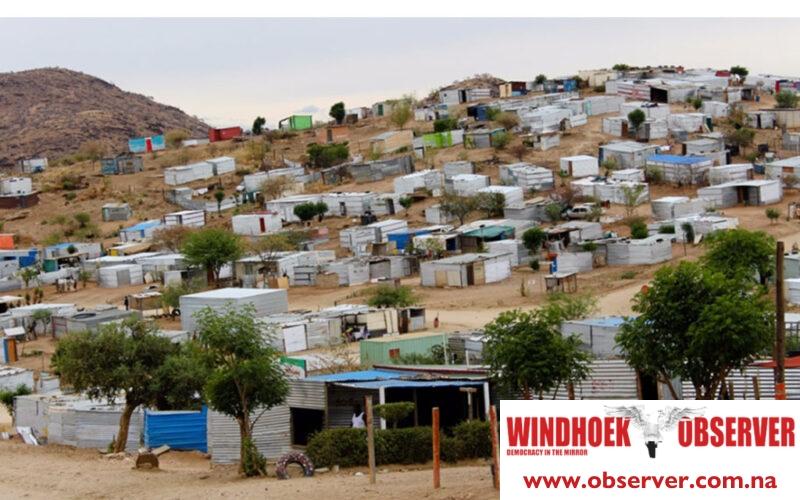Stefanus Nashama
Windhoek is struggling with the mushrooming of the number of shacks that are often believed to belong to people in need of land.
However, the situation is not as straightforward as it seems.
Residents of informal settlements like Havana, Goreangab, Oshitenda, and Okahandja Park in Windhoek confirmed that many shacks and bars in their neighbourhoods are rented from wealthy people.
They say many shacks belong to government officials, people with high social status and those who own houses in upmarket suburbs elsewhere in the city.
“They come and build large structures here, seizing land and opportunities alongside us while leaving us with no room to expand our small structures when needed,” said Simon Iita, a resident of Havana.
Although many of the residents have signed up with the Shack Dwellers Federation of Namibia (SDFN) to acquire land, this remains a distant dream.
In its 2022 annual report, the SDFN said securing residential land for low-income earners is the most difficult thing in Windhoek, where almost 80% of its members reside.
“They are all over here. Why are they competing with us when they are well-equipped to live elsewhere, register their business, and pay taxes to the government?” questioned Marius Tangeni from Oshitenda.
Tangeni added impoverished individuals reside in informal settlements because they are unable to purchase land.
A resident of Goreangab informal settlement, Nepetti Uugwanga, said wealthy individuals construct large shacks, which they rent out at exorbitant prices to impoverished people.
“They charge us high rents,” she said.
The challenge presented by building large shacks arises when they attempt to expand their shacks as their family grows.
“When you want to expand your shack or small business, there is no available space because other businesses already occupy it,” said another resident.
Apart from shacks and bars, the residents further claim that wealthy individuals operate unregistered businesses, such as bars, auto repair shops, betting establishments, and supermarkets.
Despite this concern, the residents said this has also brought services closer to them, eliminating the need to travel to other locations.
The residents are urging the Windhoek Municipality to address the issue by allocating land according to demand and ensuring fair distribution for all.
Nestor Kalola, the councillor of Samora Machel Constituency, echoed the residents’ concerns.
He pointed out that most businesses in informal settlements belong to wealthy individuals who do not live in those areas.
“It is true. I can confirm this. If investigations can be done, you would agree with me that rich people own shacks in those areas, especially for business purposes,” Kalola explained.
He said such individuals do not require land but instead occupy space that could be used by those genuinely struggling to make ends meet.
“Can you believe that there are businesses worth more than N$200,000? Some of them are worth more than twice that amount. Are you trying to tell me that someone with that kind of money can’t afford to buy land, own a house, or rent a business?” he questioned.
According to Kalola, many of these businesses are not registered and do not contribute anything to the government.
He added that although wealthy individuals occupy such land, they do not address the social needs of the people in those areas.
“The whole money goes into their pocket while they are there illegally. I take money from my pocket to help those in need, but no one of these individuals does the same,” he said.
Kalola added that the mushrooming of bars has led to an increase in alcohol abuse in their areas.
He recommended investigating such businesses so they could begin paying taxes to the government.
Moses Garoeb Constituency Councillor Stefanus Ndengu said the resident’s story might be true. However, he added that the problem arises from people selling their places to individuals not residing in the informal settlement.
“If you sell your shack or place to someone, that person can change the place and conduct business. Sometimes our people are the ones that cause such issues,” he explained.
The City of Windhoek did not respond to the questions sent to them in this regard.




